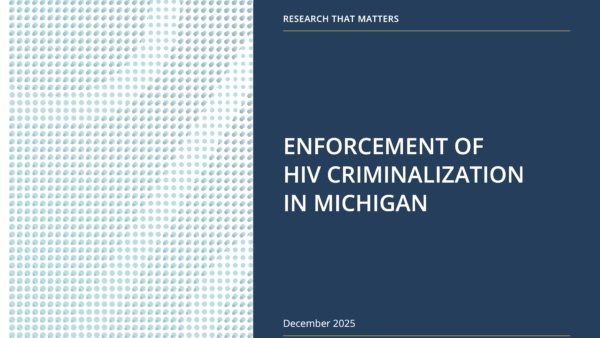For the past few weeks, social and conventional media have been awash with the most heinous of headlines — “Harare model injects lover’s son with HIV.”
BY BELLINDA CHINOWAWA & ELIZABETH MANGENJE
An outraged public bayed for her blood, denouncing the model and calling for her immediate incarceration. After an invasive HIV test, it emerged that the allegations against the model were false, and that she is just another victim of the poorly crafted section 79 of the Criminal Law (Codification and Reform) Act, which in part reads as follows;
“ Any person who
(a) Knowing that he or she is infected with HIV; or
(b) Realising that there is a real risk or possibility that he or she is infected with HIV
Intentionally does anything or permits the doing of anything which he or she knows will infect, or does anything which he or she realises involves a real risk or possibility of infecting another person with HIV, be guilty of deliberate transmission of HIV, whether or not he or she is married to that other person, and shall be liable to imprisonment for a period not exceeding twenty years.”
The wording of this provision is objectionable because:
It criminalises sexual intercourse
Under this section, any person who has had sexual intercourse can be arrested and prosecuted, as with every sexual encounter, there is a risk or possibility of infection with HIV. Scientific research shows that no one method is 100% effective in protecting against the risk of infections. Having safe sexual intercourse is, strictly speaking, irrelevant for the purposes of this provision. A dangerously wide offence has been created.
It creates conditions for false incrimination
It is currently not possible in this country to tell who was infected first. Thus, the story which carries the day is that of the person who reports to the police first. This disadvantages women, who by reason of their reproductive health needs invariably get to know their status first as antenatal care services make HIV-testing compulsory for women. The only option for women to avoid prosecution under section 79 is to avoid antenatal care services or to opt out of HIV-testing, notwithstanding the danger that these decisions present for their own health, the health of their unborn babies and the community at large.
It does not reduce the spread of HIV
There is no evidence that applying criminal law to HIV risk behaviour incapacitates, rehabilitates, or deters offenders.
It promotes fear and stigma
Prosecution under section 79 is typically accompanied by inflammatory and ill-informed media coverage and this only serves to reinforce stigma against people living with HIV.
It penalises a conjectural likelihood
In terms of section 79, one does not actually have to have infected someone with HIV for a court to find that there has been “deliberate transmission of HIV”. Where a person facing charges under this section is tested and found positive, then a court must convict them, whether or not any transmission took place!
It disproportionately affects the already marginalised
Due to the persistence of deep-rooted prejudice against groups such as commercial sex workers, there is a real possibility that criminal prosecution will disproportionately affect them, as they are easy targets for such a witch hunt.
Data and evidence collected in 15 years (1986-2001) on prosecution for HIV transmission or exposure in the United States as well as several studies conducted around Europe revealed that most of the individuals convicted for HIV transmission or exposure were in vulnerable social and economic positions, including, commercial sex workers and prisoners.
Thus, it is arguable that section 79 of the Criminal Law (Codification and Reform) violates section 56 of the Constitution which guarantees non-discrimination and equal protection of the law. A law that puts people at risk of prosecution and 20 years imprisonment for a crime whose elements are not sufficiently clear for them to regulate their conduct cannot be said to be in line with the protection guarantee under the Constitution. As Edwin Cameron, a Judge of the Supreme Court of Appeal of South Africa, has noted, “prosecutions for HIV transmission and exposure, and the chilling content of the enactments themselves, reinforce the idea of HIV as a shameful, disgraceful, unworthy condition.”
The persecution and prosecution of the Harare model is proof of all the reasons why HIV should not be criminalised. The general criminal law is sufficient to deal with instances where a person maliciously and deliberately infects others with HIV, and in other jurisdictions, such persons are charged with assault, or attempted murder. There is no proof that criminalising HIV transmission will achieve either criminal justice or prevents HIV transmission.
The sentiment behind section 79 is understandable — it is grounded in the belief that, given the deleterious nature of HIV, any person living with it, has a moral duty to avoid infecting others. In this instance, however, the criminal law is a blunt instrument, imprecise and heavy-handed, leaving a trail of destruction in its wake. The criminalisation of HIV transmission threatens a human rights response to HIV that empowers people to avoid infection or live successfully with HIV. As UNAIDS has noted, instead of applying criminal law to HIV transmission, governments should expand programmes which have been proven to reduce HIV transmission and strengthen and enforce laws against rape and other forms of sexual violence against women and children.
The events of the past few weeks have shown that Section 79 of the Criminal Law (Codification and Reform) Act is overly-broad, and open to abuse. It only serves to entrench stigma and discrimination, and has no place in a society ostensibly founded on recognition of the inherent dignity and worth of each human being.
l Bellinda Chinowawa and Elizabeth Mangenje are project lawyers with Zimbabwe Lawyers for Human Rights









